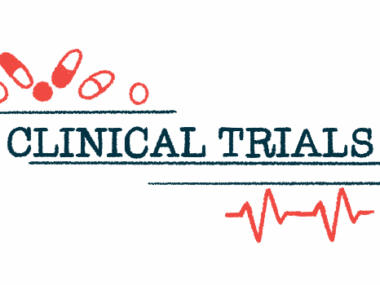Pivotal STAR-0215 trial planned pending positive Phase 1/2 trial data
Initial results from the ALPHA-STAR study are expected mid-2024
Written by |

Astria Therapeutics intends to move directly into a pivotal trial to support STAR-0215’s regulatory approval for hereditary angioedema (HAE) if proof-of-concept results from the ongoing Phase 1b/2 trial are positive, the company has announced.
Initial results from the trial, called ALPHA-STAR (NCT05695248), are expected in mid-2024.
With three active U.S. sites, the study seeks to enroll up to 18 adults with HAE types 1 or 2 who’ve had at least four swelling attacks in the last year and aren’t on preventive therapy.
ALPHA-STAR’s February launch closely followed the release of positive safety and pharmacological data from a Phase 1a trial in healthy adults, which supported a dosing regimen of a single under-the-skin (subcutaneous) injection every three months.
Astria is now investigating the potential of a single injection every six months in anther group of healthy participants. Those data will also inform the design of a potential pivotal trial, according to the company.
“We made excellent progress with our STAR-0215 program in 2022, culminating in the promising initial Phase 1a results,” Jill C. Milne, PhD, Astria’s CEO, said in a company press release. “The recent initiation of our ALPHA-STAR Phase 1b/2 trial marked an important step towards our goal of reducing the disease and treatment burden as we work to normalize the lives of people with HAE.”
How does STAR-0215 address swelling episodes?
Overactive kallikrein leads to the excessive production of a molecule called bradykinin that drives HAE swelling attacks.
STAR-0215 is an antibody designed to block kallikrein and prevent swelling. Its mechanism of action is similar to the approved HAE therapy Takhzyro (lanadelumab), which is marketed by Takeda.
Takhzyro is given subcutaneously once every two weeks and can be reduced to once a month if patients remain attack-free. STAR-0215 would allow for a less frequent and more manageable dosing schedule, a significant need identified by HAE patients.
Preclinical studies indicated STAR-0215 is more potent and has greater stability in the bloodstream than Takhyzro, with a more than threefold longer half-life. A half-life is the time it takes for the levels of a molecule in the bloodstream to drop by half, a commonly used metric for assessing a treatment’s pharmacological properties.
Based on those findings, Astria estimated STAR-0215 could remain above minimum therapeutic levels for at least 84 days, or nearly three months, after a single injection.
The Phase 1a trial (NCT05477160) was launched last year to test that estimate.
A group of 25 healthy adults, ages 18-60, were randomly assigned to receive a single injection of STAR-0215 at a dose of 100, 300, or 600 mg — or a placebo — and are being monitored for 224 days, between seven to eight months.
As previously reported, STAR-0215 was found to be well tolerated at all dose levels at up to 84 days of treatment, with the most common side effect being mild, temporary injection site reactions.
At its two highest doses, STAR-0215 achieved a rapid and sustained presence in the bloodstream at levels above the minimum threshold for therapeutic benefit. Its estimated half-life was 117 days, nearly four months. This was accompanied by a robust inhibition of kallikrein through day 84, further supporting the potential clinical benefit of a single dose for up to three months.
“These results support our vision for STAR-0215 to be the first-choice preventative therapy for HAE,” Milne said.
On the heels of the Phase 1a data, ALPHA-STAR began enrolling HAE patients in February. After a run-in period, participants will receive either a single under-the-skin injection or two injections three months apart.
The proof-of-concept trial’s main goal is safety, but efficacy measures, including the rate and severity of swelling attacks, will be collected and compared with the pretreatment run-in period. Kallikrein levels, the development of antibodies against the therapy, and quality of life will also be assessed.
“We look forward to the initial proof-of-concept results from ALPHA-STAR expected in mid-2024,” Milne said.


